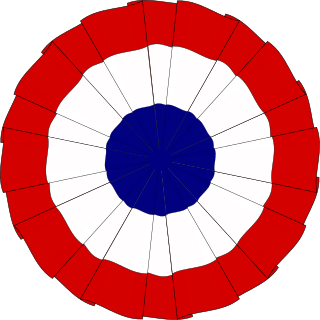
The 1793 United States Senate election in Pennsylvania was held on February 28, 1793. Albert Gallatin was elected by the Pennsylvania General Assembly to the United States Senate.

The 1794 United States Senate special election in Pennsylvania was held on March 31, 1794. James Ross was elected by the Pennsylvania General Assembly to the United States Senate.

The 1797 United States Senate election in Pennsylvania was held on February 16, 1797. Incumbent James Ross was re-elected by the Pennsylvania General Assembly to the United States Senate.

The 1802 United States Senate election in Pennsylvania was held on December 14, 1802. Samuel Maclay was elected by the Pennsylvania General Assembly to the United States Senate.

The 1814 United States Senate special election in Pennsylvania was held February 24, 1814. Jonathan Roberts was elected by the Pennsylvania General Assembly to the United States Senate.

The 1814 United States Senate election in Pennsylvania was held on December 10, 1814. Incumbent Jonathan Roberts was elected by the Pennsylvania General Assembly to the United States Senate.

The 1831 United States Senate special election in Pennsylvania was held on December 13, 1831. George M. Dallas was elected by the Pennsylvania General Assembly to the United States Senate.

The 1832-1833 United States Senate election in Pennsylvania was held on eleven separate dates from December 1832 to December 1833. On December 7, 1833, Samuel McKean was elected by the Pennsylvania General Assembly to the United States Senate.

The 1845 United States Senate election in Pennsylvania was held on January 14, 1845. Incumbent Daniel Sturgeon was re-elected by the Pennsylvania General Assembly to the United States Senate.

The 1851 United States Senate election in Pennsylvania was held on January 14, 1851. Richard Brodhead was elected by the Pennsylvania General Assembly to the United States Senate.

The 1857 United States Senate election in Pennsylvania was held on January 13, 1857. Simon Cameron was elected by the Pennsylvania General Assembly to the United States Senate.

The 1863 United States Senate election in Pennsylvania was held on January 13, 1863. Charles Buckalew was elected by the Pennsylvania General Assembly to the United States Senate.

The 1869 United States Senate election in Pennsylvania was held on January 19, 1869. John Scott was elected by the Pennsylvania General Assembly to the United States Senate.

The 1875 United States Senate election in Pennsylvania was held on January 19, 1875. William A. Wallace was elected by the Pennsylvania General Assembly to the United States Senate.

The 1887 United States Senate election in Pennsylvania was held on January 18, 1887. Matthew Quay was elected by the Pennsylvania General Assembly to the United States Senate.

The 1893 United States Senate election in Pennsylvania was held on January 17, 1893. Incumbent Matthew Quay was re-elected by the Pennsylvania General Assembly to the United States Senate.

The 1901 United States Senate special election in Pennsylvania was held on January 15, 1901, after the regularly scheduled legislative election in January—April 1899 failed to elect a Senator. Former Senator Matthew Quay, who had left the Senate for nearly two years because of the political stalemate, was again elected by the Pennsylvania General Assembly to the United States Senate.

The 1909 United States Senate special election in Pennsylvania was held on March 16, 1909. George T. Oliver was elected by the Pennsylvania General Assembly to the United States Senate.

The 1911 United States Senate election in Pennsylvania was held on January 17, 1911. Incumbent George T. Oliver was re-elected by the Pennsylvania General Assembly to the United States Senate. This was the last Class I U.S. Senate election to be decided by the Pennsylvania General Assembly before the ratification of the 17th Amendment to the U.S. Constitution, which mandated direct election of U.S. Senators.





